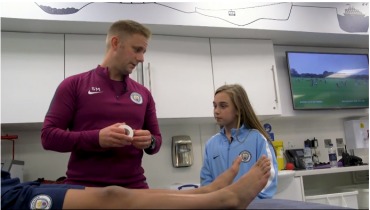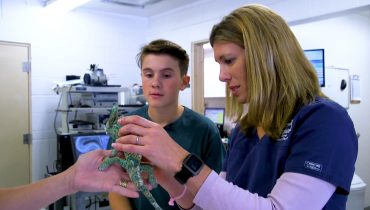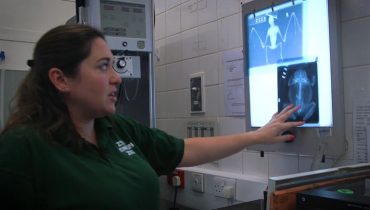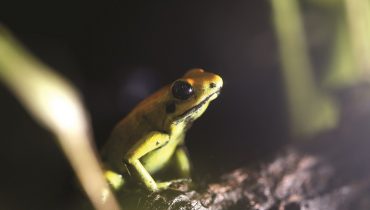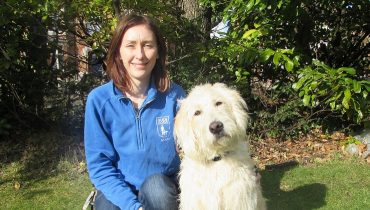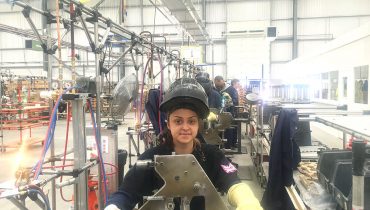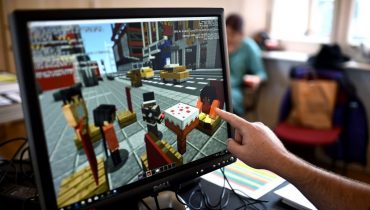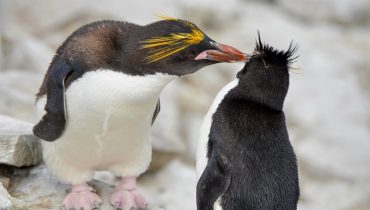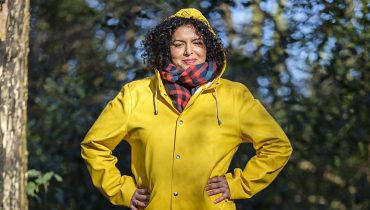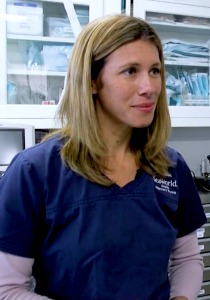 If you love animals and think you might want to be a vet, this First Careers film will give you an insight into what the job involves. And even if you don’t want to be a vet, it’s still a fascinating film with some super-cute animals in it!
If you love animals and think you might want to be a vet, this First Careers film will give you an insight into what the job involves. And even if you don’t want to be a vet, it’s still a fascinating film with some super-cute animals in it!
What’s the job?
Aquatic animal vet.
Who would I be working for?
There are hundreds of zoos and aquariums in the UK and they are popular all around the world, although many of these are very small and only keep a limited range of creatures, such as penguins, butterflies, birds of prey or primates. The larger the zoological facility you work for, the wider the range of species you are likely to work with. At somewhere like SeaWorld Parks, vets might have to deal with hundreds of different types of animal or marine life.
What do they do?
Vets are like doctors are to humans! They treat sick or injured animals, but if they are quite senior they may also have to manage a team of people, including other vets.
What sort of work is involved?
- Diagnosing and treating sick animals, including performing operations. In a place like SeaWorld, this could involve anything from turtles to dolphins. With the aquatic animals that SeaWorld specialise in, you would have to get used to treating animals while they’re in the water!
- Using technology to find out what is wrong with a sick animal. This could include digital radiography (X-rays), as well as ultrasound, where reflected sound waves are used to build up a picture of the part of the body you’re interested in, or endoscopy, which involves using a very thin cable with a camera at one end to see high-quality images of an animal’s insides.
- Carrying out preventative work, to try and stop animals getting ill in the first place. This could include things like regular check-ups and giving vaccinations.
- Talking to your peers or colleagues to discuss any problems. Keepers know the animals better than anyone, so they can often give vets an early warning about any problems.
- Discussing treatment programmes with colleagues and other zoological institutions around the world.
- Making sure that electronic records of each animal’s treatment are correct and up to date.
- If an animal is very old and in pain that can’t be treated, you may have to give them an injection to put them to sleep. This is one of the saddest, but most necessary, parts of a vet’s job.
What skills do I need?
- Ability to handle animals of all shapes and sizes.
- Being caring is essential, but so is the ability to not let your emotions influence any tough decisions you have to make about a sick animal.
- An understanding of medical technology, and the ability to quickly learn how to use and apply new gadgets and software as it becomes available.
- Confidence with IT, as computers are increasingly used to analyse medical images and results, as well as keep records. Treating exotic animals also means that you’ll often have to access electronic databases to learn about animals or diseases that you haven’t come across before.
- Excellent verbal and written communication skills, as you will have to work with colleagues from a wide variety of backgrounds and countries. You will also have to speak to and email experts in other facilities and share information electronically so that you can work together to solve problems with your animals. Organisational skills are very important, too, as you will have to deal with a large number of animals and people, and various computer programs.
What qualifications do I need?
There are only eight official university veterinary schools in the UK (Glasgow, Edinburgh, Liverpool, Nottingham, Cambridge, London, Surrey and Bristol), but they all have slightly different requirements. Typically, you will need AAB or AAA at A level, including biology. The other expected subjects would be chemistry, physics or maths. You would also have to have at least a grade C (4/5 in the new system) at GCSE in English language, maths and science.
You can get more detail about required grades and equivalents on the website for the Royal College of Veterinary Surgeons or on the websites of the eight veterinary schools.
What hours would I work?
Vets working at SeaWorld are available 24-7 for the animals that call the park home and rescued animals. However, when you’re starting out at a local veterinary practice, you’ll probably have a pretty standard working week of something like 9-5.30 from Mon-Fri, possibly with some slightly later evenings and some Saturday mornings.
Where would I work?
There are zoos and aquariums in every part of the UK and the rest of the world, so you could end up just about anywhere! However, you would usually need to get a few years’ experience of being a vet in a local veterinary practice before you could start to think about working in a zoo with more exotic animals. There are thousands of veterinary practices across the UK, so there’s almost certainly one near where you live!
How much would I get paid?
A newly-qualified vet might get around £30,000 a year. A very senior vet could be earning up to £60-70,000, depending on where they work. Many zoos are charities, so they may not pay quite as well as a private company would.
Can I do work experience?
Yes, and if you want to become a vet, the more work experience you can get, the better. Find out if your school has any contacts with local vets, zoos or farms where you might be able to get experience. Also, getting experience with a wide range of animals is really valuable.
How might the job change in the future?
As more species go extinct, experts will have to decide which ones are most likely to benefit from being bred in zoological facilities. Places like SeaWorld already invest millions of dollars conserving wild animals and wild places, as well as supporting critical conservation work on every continent. As technology develops, there will be more ways of diagnosing and treating animals, helping them to stay healthy for longer, so you’ll constantly have to adapt to new software and equipment.






